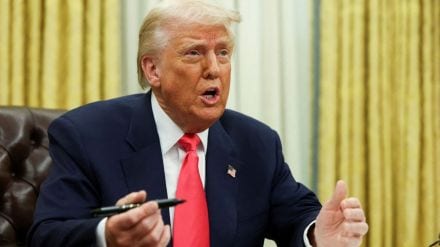In a White House signing ceremony, US President Donald Trump approved three Congressional Review Act resolutions that dismantle California’s electric vehicle (EV) mandates, which had become a model for more than a dozen other states pursuing aggressive climate goals. The move marks a major escalation in Trump’s broader effort to dismantle environmental regulations, particularly those targeting the auto industry.“We officially rescue the US auto industry from destruction by terminating California’s electric vehicle mandate, once and for all,” Trump declared, flanked by House Speaker Mike Johnson, Transportation Secretary Sean Duffy, Energy Secretary Chris Wright, and EPA Administrator Lee Zeldin.
California’s rules, most recently updated in 2022, had set a national benchmark for zero-emission vehicle (ZEV) adoption, requiring all new passenger vehicles sold in the state to be electric or otherwise carbon-free by 2035. Over a dozen Democratic-led states had opted to follow suit, collectively representing about one-third of the U.S. auto market.
But the Trump administration — which has also moved to loosen federal vehicle standards — targeted California’s authority under the Clean Air Act, long allowing it to set stricter pollution rules due to its persistent air quality issues, especially in the Los Angeles Basin and Central Valley.
The rollback not only ends California’s EV mandate for passenger cars but also dismantles its authority to enforce emissions rules for heavy-duty diesel trucks and mandates for commercial ZEV sales — all of which faced strong opposition from automakers and fossil fuel groups.
The legality of using the Congressional Review Act (CRA) to strike down California’s state-specific rules is under intense scrutiny. The CRA typically applies to federal agency actions, and nonpartisan bodies like the Senate Parliamentarian and Government Accountability Office have questioned whether California’s rules qualify.
California officials have vowed a swift legal response, warning that losing the state’s waiver could delay progress on its climate and air quality goals. Without it, the California Air Resources Board (CARB) would have to seek new avenues to reduce emissions. CARB Chair Liane Randolph told lawmakers she’s confident the state will prevail in court — but acknowledged litigation could take years, during which the mandates would be unenforceable. In the meantime, the state is exploring options like stricter emissions rules on indirect sources (e.g., warehouses), boosting EV incentives, and expanded public transit funding.
